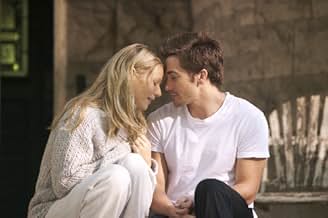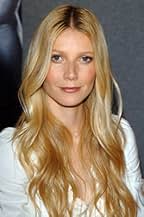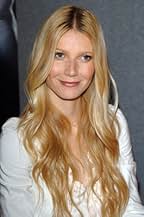Proof
- 2005
- Tous publics
- 1h 40min
Ajouter une intrigue dans votre langueThe daughter of a brilliant but mentally disturbed mathematician, recently deceased, tries to come to grips with her possible inheritance: his insanity. Complicating matters are one of her f... Tout lireThe daughter of a brilliant but mentally disturbed mathematician, recently deceased, tries to come to grips with her possible inheritance: his insanity. Complicating matters are one of her father's ex-students, who wants to search through his papers, and her estranged sister, who... Tout lireThe daughter of a brilliant but mentally disturbed mathematician, recently deceased, tries to come to grips with her possible inheritance: his insanity. Complicating matters are one of her father's ex-students, who wants to search through his papers, and her estranged sister, who shows up to help settle his affairs.
- Réalisation
- Scénario
- Casting principal
- Récompenses
- 4 victoires et 6 nominations au total
- Limo Driver
- (as Tobiacz Daszkiewicz)
- University Friend
- (as C Gerod Harris)
- American Student
- (non crédité)
- Wake Guest
- (non crédité)
Avis à la une
This is a compelling portrayal of the mathematical obsession. It's not as flashy or romantic as cinema tries to dress up math sometimes. It is a bit sad. Paltrow does great work following Hopkins. She shows that she's not simply a romantic lead. It's a compelling character study.
This is story about mathematics, actually about mathematicians which is much, much better. "Beautiful Mind" was repellent in a few ways; one was in the cartoonish way mathematical imagination was shown. Another was the way history was bent away from a truly interesting story to be palatable for film audiences. Math at that level requires the juice of life that he took in large gulps from both sexes. And he was such a glutton for mindbending adventure that he bent his own mind. I do not believe he suffered from some genetic disease, nor did he.
This movie repairs some of that. Its clear I think that the Nash phenomenon is at work here: minds powerful enough to break themselves, possibly leaving some mathematical residue, possibly not. The focus on primes may be accidental, but it is apt. As time goes on, they become increasing rarer and infinitely more fascinating, all apparently random but with some hint of unseen order. They don't interest me so much...
In fact, selecting films to build into your life (perspectives and stories to live) is a lot like choosing the types of problems to work on and how. The proof of being in a way is that the selection is made deliberately, based on your weaknesses, not your strengths. Only weak mathematicians and souls work on problems they understand. No life comes from the undaunting. No magic ever comes alone or from peace.
Hopkins isn't obnoxious here. Its clear that he is acting and that the lines are those of a stage character. But he doesn't grandstand; he's gently broken and there are some sweet moments (only two, but central) where he seems to completely have second-guessed where his daughter is going and lucidly makes key suggestions. Hopkins understood those moments and gives then some significance.
Ted's Evaluation -- 3 of 3: Worth watching.
She inhabits her character so fully, I was pulled in and so completely entranced the entire time. In fact, certain words or phrases are reused and have an uncanny allusion to when they were previously said. The effect as that you experience and follow the moments, and the thoughts of the characters, even though they are so deeply imbedded within. I credit Gwyneth and the director with making this work so well. I've never experienced such an organic link between phrases separated in time in a movie before. Wow!
This is a movie about how a daughter, her sister, and a grad student deal with the passing of a great mathematician. While there may be similarities with 'A Beautiful Mind' and even 'Good Will Hunting', knowing there are any such links didn't help me with this movie and I think actually does a dis-service. This movie stands on its own. Ignore any such comparisons.
Acting-wise, there were strong performances all around with Anthony Hopkins giving a top-notch performance. Jake Gyllenhaal's was strong, but perhaps not to the level of his rather awesome performance in Brokeback Mountain.
Good things aside, the one thing that irked me about this film, was that given the strong link to mathematics, how unbelievable some of the dialogue was regarding the 'math. While Gwyneth's and Hopkins' characters pulled off a sense of mathematical intelligence, Jake's character hardly said anything mathematically competent and even came across as flustered in expressing himself mathematically leaving me feeling cheated. In my view, this is chiefly the fault of the screenplay but to a lesser extent in the actor's portrayal. Ignore this rather small point, and this movie passes with flying colours. Q.E.D.
I didn't see the David Auburn play on which the movie is based, and maybe many of the film's detractors have: screen adaptations of favorite plays often seem to dilute them to the detriment of the story. But if this movie is worse than its stage counterpart, it must have made one damn fine play.
The acting in this film is its major attribute, and director John Madden is wise enough to realize the talent of his ensemble and stand out of their way. He plays a bit with chronology and lets the pieces of his story click into place much like a math puzzle; I don't know whether or not this is original to the film or borrowed from the play, but either way it works well. But mostly, he lets the actors strut their stuff, and the four principals make the most of meaty roles.
Most of the acclaim has been falling, and rightly so, to Gwyneth Paltrow, who gives a full-bodied, textured and powerful performance as Catherine, who has inherited her genius at math from her father and is deathly afraid that she may have inherited his madness as well. I don't know that Paltrow has yet had a role as substantial as this one, and she flexes her acting chops in a way I have not seen her do outside of her underrated performance in "Sylvia." Hope Davis matches her scene for scene as the astringent older sister; it's refreshing to see Davis break away from the mousy, mealy persona she so frequently adopts and play this crisp, overwhelming character. The male actors have less to do overall, but the roles are perfectly cast. Jake Gyllenhaal is ripe for stardom, and this may be the year that brings it. Anthony Hopkins has been dismissed as hammy here, but I think he does an effective job of portraying mental illness, and creates heartbreaking moments that could have been ruined had they been played differently.
"Proof" feels entirely honest about the dynamics of dysfunctional families; you just know David Auburn is writing from personal experience. Like Robert Redford's "Ordinary People," if you have any exposure to similar family dynamics, you know the team that put the film together got everything just right. "Proof" also creates a parallel between mathematics and the messiness of life that makes one re-evaluate the rigidity of what always appears to be an exact science. As one must accept a level of ambiguity in life, one must also be willing to make leaps of faith in mathematics, because nothing can be 100% proved.
I highly recommend this film. It's satisfying on both an intellectual and emotional level. And any movie that can make math exciting to me gets an automatic thumbs up.
Grade: A
Le saviez-vous
- AnecdotesAccording to the clues of Hal, played by Jake Gyllenhaal, the proof can be the proof of Riemann hypothesis. He says "a very important proof, of a mathematical theorem about prime numbers, which mathematicians are trying to prove; it's historic; you can publish it, give press conferences; all newspapers in the world will talk to the person who have found it." It's one of the Millennium Problems.
- GaffesThe daughter talks about how the father was looking for a message from aliens in the Dewey decimal call numbers on the books from the University of Chicago library. The University of Chicago uses Library of Congress call numbers, which begin with letters, not numbers.
- Citations
Catherine: [Reading Robert's Notebook] "Let X equal the quantity of all quantities of X. Let X equal the cold. It is cold in December. The months of cold equal November through February. There are four months of cold, and four of heat, leaving four months of indeterminate temperature. In February it snows. In March the Lake is a lake of ice. In September the students come back and the bookstores are full. Let X equal the month of full bookstores. The number of books approaches infinity as the number of months of cold approaches four. I will never be as cold now as I will in the future. The future of cold is infinite. The future of heat is the future of cold. The bookstores are infinite and so are never full except in September..."
- ConnexionsFeatured in The 63rd Annual Golden Globe Awards 2006 (2006)
- Bandes originalesEl chocha loca
(2002)
Written by Claudio Quattrocchi
Performed by Loca
Published by Big Tiger Music (BMI)
Courtesy of Lovecat Records
By Arrangement with Ocean Park Music Group
Meilleurs choix
- How long is Proof?Alimenté par Alexa
Détails
- Date de sortie
- Pays d’origine
- Site officiel
- Langue
- Aussi connu sous le nom de
- Preuve irréfutable
- Lieux de tournage
- Sociétés de production
- Voir plus de crédits d'entreprise sur IMDbPro
Box-office
- Budget
- 20 000 000 $US (estimé)
- Montant brut aux États-Unis et au Canada
- 7 535 331 $US
- Week-end de sortie aux États-Unis et au Canada
- 193 840 $US
- 18 sept. 2005
- Montant brut mondial
- 14 189 860 $US
- Durée1 heure 40 minutes
- Couleur
- Mixage
- Rapport de forme
- 2.35 : 1
Contribuer à cette page






































